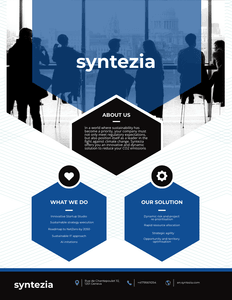



artificial intelligence advisory
- Engagements
- Services
- Services catalogue
- Events
- Methods and tools
- kickstart esg 4 hours
- Discover our ecosystem
- Mediation circles
- Funding
- Franchise
- Contact
- Contact us
- Blue economy
- Press room
- Historical
- HR
- Sustainability reports
- …
- Engagements
- Services
- Services catalogue
- Events
- Methods and tools
- kickstart esg 4 hours
- Discover our ecosystem
- Mediation circles
- Funding
- Franchise
- Contact
- Contact us
- Blue economy
- Press room
- Historical
- HR
- Sustainability reports



artificial intelligence advisory
- Engagements
- Services
- Services catalogue
- Events
- Methods and tools
- kickstart esg 4 hours
- Discover our ecosystem
- Mediation circles
- Funding
- Franchise
- Contact
- Contact us
- Blue economy
- Press room
- Historical
- HR
- Sustainability reports
- …
- Engagements
- Services
- Services catalogue
- Events
- Methods and tools
- kickstart esg 4 hours
- Discover our ecosystem
- Mediation circles
- Funding
- Franchise
- Contact
- Contact us
- Blue economy
- Press room
- Historical
- HR
- Sustainability reports

synthesis mobility
Our project teams for active, gentle and low-carbon mobility (in particular via Mobility as a Service).
We seek to develop new technologies and solutions that reduce greenhouse gas emissions and contribute to the fight against climate change.
Here are some concrete examples of our interventions:
1. Electric and autonomous vehicles:
- Development of more efficient and cheaper batteries: Increase the range of electric vehicles and make them more affordable.
- Establishment of denser charging infrastructure: This will allow electric vehicle drivers to charge their vehicles easily and anywhere.
- Deployment of autonomous driving: Reduce road congestion and improve road safety.
2. Public transport and soft mobility:
- Development of more efficient and more attractive public transport: This will encourage people to leave their cars in the garage and use public transport.
- Promotion of soft mobility, such as cycling and walking: This will reduce air pollution and improve public health.
- Implementation of shared mobility services, such as bike sharing and car sharing: This will allow people to move more flexibly and economically.
3. Alternative Fuels:
- Development of renewable and sustainable fuels, such as hydrogen and biofuels: Reduce dependence on fossil fuels.
- Establishment of distribution infrastructure for alternative fuels: This will enable motorists to easily obtain alternative fuels.
4. Artificial intelligence, MaaS and big data:
- Use of artificial intelligence to optimize road traffic management: Reduce road congestion and improve traffic flow.
- Use of big data to better understand users' mobility needs: Develop mobility solutions more suited to user needs.


